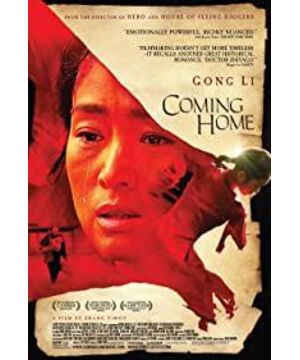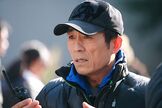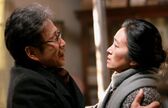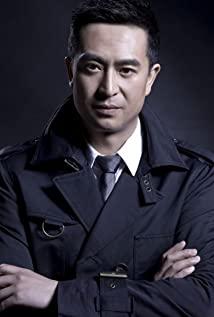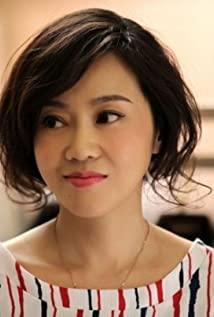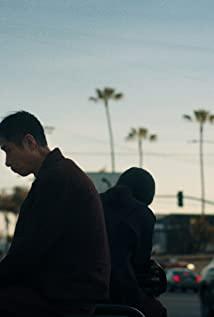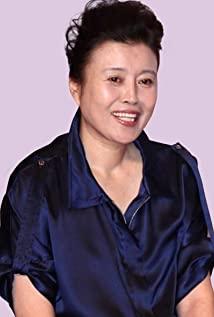, was released on May 16, with a box office of nearly 30 million on the first day, setting a new record for the box office of a domestic literary film on the first day. . Compared with the negative reviews of films such as "Hero", "Return" has won a good box office and reputation, but the controversy still exists. The divergent points of audience opinions are mainly entangled in the core issue of adaptation. As we all know, "Return" is adapted from Yan Geling's 2011 novel "Lu Yanshi", but there are significant differences between the film and the novel.
Novel: The Dilemma and Suffering of Intellectuals
In the 20th century, the long and vast historical background, the novel "Lu Yanshi" revolves around the life experience of the protagonist Lu Yanshi, showing the tragic fate of a generation of intellectuals, and then developing the understanding of knowledge. Digging, examining and reflecting on the dilemma of molecular spirit. Arguably, "freedom" is its most important theme. Lu Yanshi's life was full of ups and downs, because he always longed for freedom, but misunderstood and could not get it. In his early years, it was his family that prevented him from obtaining his freedom. The novel focuses on his stepmother Feng Yifang's "tender" and slightly "perverted" control over him. She arranged the marriage of Lu Yanshi and Feng Wanyu, and even affected their normal married life. However, in 20th century China, what really controlled and stifled Lu Yanshi's freedom was omnipresent social politics. During the War of Resistance Against Japanese Aggression, he moved to Chongqing with the university where he worked, and was imprisoned for two years for publicly declaring his ideas of freedom in class. In 1954, he was arrested and sentenced again inexplicably during the huge political campaign of "cleaning up the counter-revolutionaries". The "making a riot in the courtroom" was of no avail, and in the end he was sentenced to a long "life sentence". By the time Zhaoxue was rehabilitated after the "Cultural Revolution", he had already lost his previous spirit and vitality. He was no longer Lu Yanshi, but "Lu Yanshi", stuttering when he was nervous, and his demeanor involuntarily returned to serving his sentence.
Lu Yanshi was originally a suave and wealthy son who knew four languages and returned from overseas, but because of his free and unrestrained personality, he was mistaken by politics and became a labor reform prisoner who was exiled to the northwest wasteland. Such a life really "examines the heights that life can reach in cruel years". It can be said that "Lu Criminal Yanshi" is a history of the suffering and fate of intellectuals who pursued freedom and failed. However, the novel does not fall into the routine mode of "complaining and venting" like "Scar Literature". On the contrary, Yan Geling also has a profound excavation and reflection on the spiritual predicament of intellectuals: "What are the "Lu Yanshi" pursuing?" free"? Lu Yanshi pursued freedom, but he accepted his stepmother's arranged marriage and control everywhere without complaint. He pursued freedom and had two passionate extramarital affairs, but he never thought of taking responsibility from the beginning. This kind of freedom is nothing but a self-lofty, irresponsible individualism full of compromise and cowardice. According to the words in the novel, it is "useless": "They all have their own abilities, and they mistakenly think that their abilities can make them superior to others, and make people ask for their abilities. While extracting their abilities, they can at least allow them to be lofty. Let them live their lives independently and freely. But they never understand that their skills are rarely used in isolation, and no one will spare them if their skills are exhausted. Participated in collusion and disputes, and lost their most important independence and freedom." And from Lu Yanshi's sons and daughters Feng Ziye and Feng Danyu, we can still read Yan Geling's severe criticism.
At the end, the novel brilliantly writes Lu Yanshi's understanding of love. He silently accompanies Feng Wanyu by his side. This is writing love and freedom. After a long life of wandering and deep reflection, Lu Yanshi finally understood: freedom and lack of freedom are relative, freedom is getting, but also giving and taking; true freedom is inner freedom, no one can give it, and no one can take it away .
Film: Love Themes and "Uncritical Defiance"
Compared with "Lu Yanshi" which wrote Lu Yanshi's life, "Return" only shows the second half of his life course. He did not mention his early years of studying abroad, his life during the "War of Resistance" and the beginning of the establishment of the Republic, and his long-term imprisonment. This also means that those cold, heavy and cruel parts in the novel have been deleted, and more are sad and affectionate. From the novel to the movie, the relationship between the characters has also become very simple, and only revolves around the relationship between Lu Yanshi, Feng Wanyu (Feng Wanyu in the novel accidentally changed her name) and her daughter Dandan. Love becomes the only prominent focus, which is manifested in Feng Wanyu's consistent love for Lu Yanshi even after she lost her memory, and Lu Yanshi's exhaustion of all means to "wake up Wanyu" after her return, including vain and silent companionship.
Zhang Yimou's removal of the heaviest part of the novel may be related to the gradual peace of mind, but in any case, it is the result of compromise. It is not difficult to understand that under the current censorship system, content such as "anti-Rightist" and "Cultural Revolution" cannot be relegated to video. There is reason to believe that Zhang Yimou, who made "Alive", has the ability to restore the text better, and resort to reflection on the relationship between politics, institutions and individuals. However, the large adaptation of "Return" to "Lu Yanshi"—to be precise, the large elimination, especially the complete disregard of the theme of "freedom", is Zhang Yimou's accurate adjustment of the scale on the censorship seesaw, which is very moderate, Very shrewd, and perhaps helpless.
However, it would also be one-sided and biased to devalue "The Return" in the first place and regard it as a mediocre love film. Undoubtedly, it is not to challenge taboos, but to make "banned films" is a good director. In fact, a really good film is not directly related to scale. Although he made a compromise, Zhang Yimou told us a story about waiting and love that flows deep in still water, and reflected on the big era through the forbearance and persistence of the little people.
The first 30 minutes of "The Return" are fast-paced and engaging. Zhang Yimou concentrated all the contradictions here. The scene where Lu Yanshi and Feng Wanyu met at the station but were separated can be said to be the highest point of the waves. After that, the two met again, and they were both different and ignorant of each other. The film hardly had any twists and turns. The rhythm was smooth, the emotions were restrained, and the gurgling was slow until the end. Some audiences couldn't help but think it was too "boring". Feng Wanyu no longer knew Lu Yanshi. Lu Yanshi tried his best to change his identity again and again to try to "wake up Wanyu": from Master Fang, piano repairer, reading letter, every time the audience was the same as Lu Yanshi, expecting Feng Wanyu could recognize that the man in front of him was the "Old Lu" that she cared about day and night, but every time her expectations came to nothing - this was indeed contrary to the audience's viewing experience. Similarly, Feng Wanyu has always been waiting for her "Old Lu". Lu Yanshi sent a letter saying that she would arrive on May 2, and since then the calendar on the wall has never turned the page again. She will always be amnesiac, "It will be the 2nd in a few days, and Lao Lu will be back." So, on "this day", no matter whether it was windy or rainy, Feng Wanyu took a card with three big characters "Lu Yanshi" to the exit of the train station early in the morning and waited eagerly. until the last scene.
It should be admitted that compared to the novel, the film adapts the love between Lu Yanshi and Feng Wanyu more delicate, profound and touching. They clearly love each other deeply, but this kind of love is "misplaced"; they both love people who don't love themselves, and they are close to each other, but they cannot recognize or touch each other. Zhang Yimou not only gave up drama, but also gave up his signature use of rich and colorful colors, but quietly and rambled to tell a story about waiting and waiting, calm, simple, and tragic, but it has everything about love.
In addition, "Return" is not just a touching love movie. In fact, "amnesia love" is also a way of drama. "Return" can be "original", but it still needs to be "adapted" from Yan Geling's novel. Obviously, Zhang Yimou values why Lu Yanshi "left" before "returning". Although Zhang Yimou did not elaborate on this, from the visit and warning of the instructor Yu Ye, his daughter's "severing ties" and whistleblowing, the heart-wrenching parting at the train station, Feng Wanyu's terrifying memory of the other master, etc., Zhang Yimou clearly pointed to that. A painful history. The film highlights the forbearance and persistence of the characters, the greatness and poignancy of love, and more profoundly reflects the crushing and destruction of people and human nature in absurd times. Yes, that era has passed, and people who have been misunderstood and persecuted have "returned". However, the pain left by the times has never disappeared. From this perspective, Zhang Yimou also realized his "criticism without resistance".
View more about Coming Home reviews


